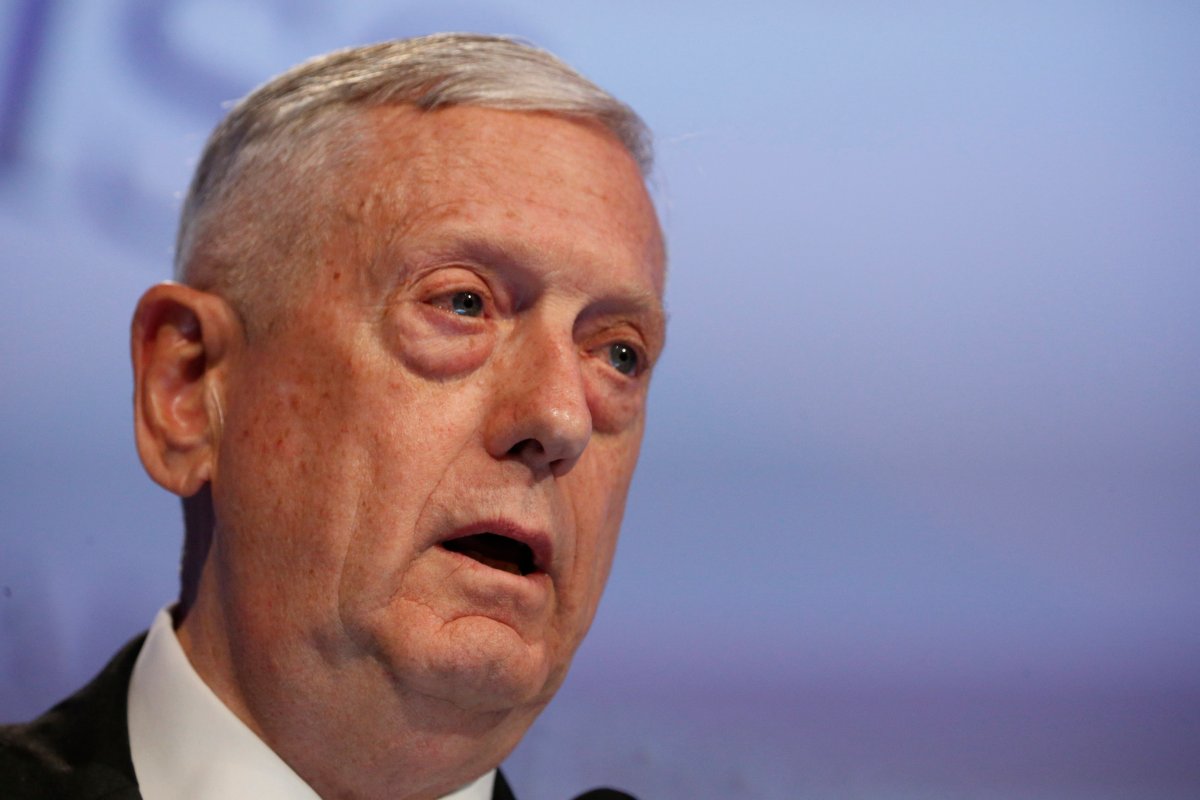North Korea is accelerating its push to acquire a nuclear-armed missile capable of threatening the United States and other nations, and the U.S. regards this as a “clear and present danger,” U.S. Defence Secretary Jim Mattis said Saturday.

Speaking at an international security conference in Singapore, Mattis said the Trump administration is encouraged by China’s renewed commitment to working with the U.S. and others to rid North Korea of its nuclear weapons. He also said he thinks China, which is North Korea’s closest ally, ultimately will see it as a liability.
China blocked tough new sanctions against North Korea that the United States pushed in the UN Security Council on Friday. However, the Security Council did vote unanimously to add 15 individuals and four entities linked to the North’s nuclear and missile programs to a UN sanctions blacklist.
In his speech to the Shangri-La Dialogue, sponsored by the International Institute for Strategic Studies, Mattis sought to balance his hopeful comments on China with sharp criticism of what he called Beijing’s disregard for international law by its “indisputable militarization” of artificial islands in disputed areas of the South China Sea.
“We cannot and will not accept unilateral, coercive changes to the status quo” in the South China Sea, he said.
Overall, Mattis’ speech struck a positive, hopeful tone for co-operation and peace in the Asia-Pacific region, where he and his predecessors have made it a priority to nurture and strengthen alliances and partnerships.
“While competition between the U.S. and China, the world’s two largest economies, is bound to occur, conflict is not inevitable,” he said. “Our two countries can and do co-operate for mutual benefit. We will pledge to work closely with China where we share common cause.”
He was, however, unrelentingly critical of North Korea, a politically and economically isolated nation whose leaders have long viewed the United States as a military threat, in part because of periodic U.S. military exercises with South Korea, which the North sees as preparations for attacks aimed at destroying its ruling elite.
READ MORE: Here’s why North Korea won’t let go of its nukes
He called North Korea an “urgent military threat.” In a question-and-answer session with his audience of national security experts from across the globe, Mattis was asked whether the U.S. might attack the North pre-emptively and without warning South Koreans in advance.
“We’re working diplomatically, economically, we’re trying to exhaust all possible alternatives to avert this race for a nuclear weapon in violation of … the United Nations’ restrictions on North Korea’s activities,” he said.
“We want to stop this. We consider it urgent,” he added.

The U.S. has about 28,500 troops permanently based in South Korea, a defence treaty ally. In his speech, Mattis said the U.S. will stick to its treaty commitments to South Korea.
“North Korea’s continued pursuit of nuclear weapons and the means to deliver them is not new, but the regime has increased the pace and scope of its efforts,” he said, alluding to the North’s series of nuclear device tests in recent years and an accelerated pace of missile tests seemingly aimed at building a missile with enough range to hit the U.S.
“While the North Korean regime has a long record of murder of diplomats, of kidnapping, killing of sailors, and criminal activity, its nuclear weapons program is maturing as a threat to all,” Mattis said, adding, “As a matter of national security, the United States regards the threat from North Korea as a clear and present danger.”
- Budget 2024 failed to spark ‘political reboot’ for Liberals, polling suggests
- Train goes up in flames while rolling through London, Ont. Here’s what we know
- Peel police chief met Sri Lankan officer a court says ‘participated’ in torture
- Wrong remains sent to ‘exhausted’ Canadian family after death on Cuba vacation
READ MORE: U.S. tests ability to shoot down missiles as North Korea tensions heat up
Mattis noted that last week the Pentagon conducted what it called a successful test of its missile defence system, which is being developed mainly with North Korea in mind. An interceptor launched from coastal California soared over the Pacific on Tuesday, scoring what officials called a direct hit on a target missile fired from a Pacific test range. It was the first time the system had been tested against a missile of intercontinental range.
Mattis used the Shangri-La Dialogue to reiterate his call for international co-operation against violent Islamic extremist groups, such as the Islamic State, sometimes called ISIS, which he said are trying to gain ground in Southeast Asia.
In his speech, Mattis made no mention of President Donald Trump’s decision to pull the U.S. out of the Paris climate change agreement, a move that infuriated allies far and wide. The Pentagon’s position in recent years has been that climate change presents threats to the nation’s security and to global stability.
The issue arose briefly during questions from his audience, but Mattis did not address it directly. An Australian questioner asked, in light of Trump’s abandonment of an international trade deal known as the Trans-Pacific Partnership, and his withdrawal from the Paris climate deal, “why should we not fret that we are present at the destruction of” a global rules-based order?
“There’s going to be fresh approaches taken” to various issues by Trump, Mattis said while making it clear that he personally believes the U.S. needs to avoid isolationist tendencies.
“Like it or not, we’re part of the world.”








Comments